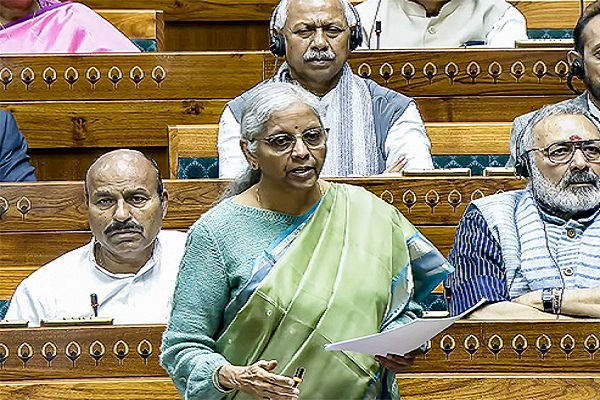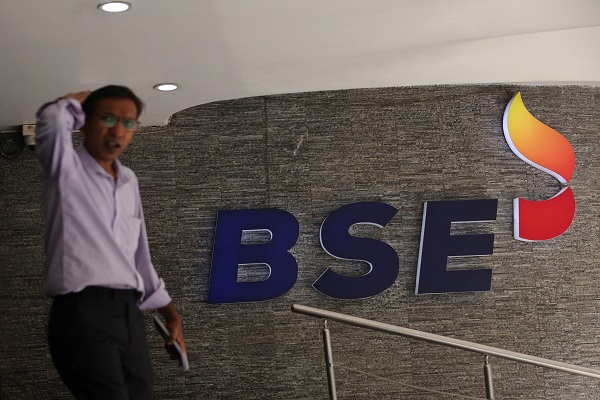Rikhav Securities coming with IPO to raise Rs 88.82 crore

Rikhav Securities
- Rikhav Securities is coming out with an initial public offering (IPO) of 1,03,28,000 equity shares in a price band Rs 82-86 per equity share.
- The issue will open on January 15, 2025 and will close on January 17, 2025.
- The shares will be listed on SME Platform of BSE.
- The face value of the share is Rs 5 and is priced 16.40 times of its face value on the lower side and 17.20 times on the higher side.
- Book running lead manager to the issue is Smart Horizon Capital Advisors.
- Compliance Officer for the issue is Sona Jain.
Profile of the company
Rikhav Securities, established in the year 1995, is engaged the business of equity broking, investing, and trading activities. It is registered with SEBI as a stock broker and hold memberships with BSE Limited (BSE), the National Stock Exchange of India (NSE), and the Multi Commodity Exchange (MCX). Its services encompass a comprehensive range of financial activities such as, equity broking, it offers cash delivery, intra-day trading, futures, and options. It is actively involved in trading across various derivative and commodity segments. Additionally, as a Self-Clearing Member of both the Indian Clearing Corporation Limited (ICCL) and NSE Clearing Limited (NCL), it ensures the smooth settlement of trades. It also assists clients in participating in Initial Public Offerings (IPOs) and provide depository services, including the opening and maintenance of demat accounts. As a mutual fund advisor and distributor, it guides clients through mutual fund investments, ensuring they navigate their options effectively.
The company also engaged in the business of Market Making by way of supporting companies that have recently listed their securities on stock exchanges. By facilitating the buying and selling of these securities post-initial public offerings (IPOs), it enhances liquidity and market efficiency. It was registered as a Market Maker with the BSE Limited (BSE) in 2012 and with the National Stock Exchange (NSE) in 2016, accumulating over a decade of experience in this field. It has executed market-making mandates for 66 companies listed on SME platforms. Its market-making activities involve providing two-way quotes during trading hours to ensure liquidity in the SME segment. Its revenue model includes fixed fees from corporates, which consist of one-time and annual fees, as well as additional earnings from spreads and other trading activities in secondary market transactions. Its commitment in market making continues to contribute to the dynamic and efficient functioning of the securities market.
The company is also engaged in making proprietary investments in various tradable securities. It invests in both securities and derivatives, currency with sufficient liquidity. The investment strategies are mostly to earn arbitrage gain done based on analysis and investment rationale. Its broking and other services are offered through its online and digital platforms, and its network of 24 Authorized Persons (the Authorized Persons) for the NSE equity segments, 23 Authorized Persons for the NSE Derivative segment, 8 Authorized Persons for the NSE Currency segment, 24 Authorized Persons and for the BSE Equity segment to acquire new clients and support existing clients with their business-related needs. Its client outreach spans several pin codes across India. As part of its financial product distribution business, it serves a diverse range of clients by facilitating investments in financial instruments and providing a variety of wealth solutions.
Proceed is being used for:
- Funding its incremental working capital requirements
- Funding of capital expenditure requirements of the company towards purchase of IT Software, Computers and Laptops
- General corporate purposes
Industry Overview
India has a diversified financial sector undergoing rapid expansion both in terms of strong growth of existing financial services firms and new entities entering the market. The sector comprises commercial banks, insurance companies, nonbanking financial companies, co-operatives, pension funds, mutual funds and other smaller financial entities. The banking regulator has allowed new entities such as payment banks to be created recently, thereby adding to the type of entities operating in the sector. However, the financial sector in India is predominantly a banking sector with commercial banks accounting for more than 64% of the total assets held by the financial system. As of March 2024, AUM managed by the mutual funds industry stood at Rs. 53.40 lakh crore ($641.75 billion) Inflow in India's mutual fund schemes via systematic investment plans (SIP) from April 2023 to March 2024 stood at Rs 2 lakh crore ($24.04 billion). Equity mutual funds registered a net inflow of Rs. 22.16 trillion ($294.15 billion) by end of December 2021. The net inflows were Rs. 7,303.39 crore ($888 million) in December as compared to a 21-month low of Rs. 2,258.35 crore ($274.8 million) in November 2022.
Stock Brokers in India are essential intermediaries who facilitate the trading of securities on behalf of clients. They operate on stock exchanges like the National Stock Exchange (NSE) and the Bombay Stock Exchange (BSE). Stock brokers play a vital role in connecting individual and institutional investors to financial markets, ensuring efficient execution of trades, and providing essential market insights and support. Derivatives are financial contracts that derive their value from an underlying asset. These could be stocks, indices, commodities, currencies, exchange rates, or the rate of interest. These financial instruments help people make profits by betting on the future value of the underlying asset. So, their value is derived from that of the underlying asset. This is why they are called ‘Derivatives’.
India’s financial services industry has experienced huge growth in the past few years. This momentum is expected to continue. India’s private wealth management Industry shows huge potential. India is expected to have 16.57 lakh HNWIs in 2027. This will indeed lead India to be the fourth-largest private wealth market globally by 2028. India’s insurance market is also expected to reach $250 billion by 2025. This will further offer India an opportunity of $78 billion in additional life insurance premiums from 2020-30. India is today one of the most vibrant global economies on the back of robust banking and insurance sectors. The relaxation of foreign investment rules has received a positive response from the insurance sector, with many companies announcing plans to increase their stakes in joint ventures with Indian companies. Over the coming quarters, there could be a series of joint venture deals between global insurance giants and local players.
Pros and strengths
Long term relationship with the clients: Long term client relationships provide the foundation for its business. The company’s dedicated focus on client coverage and its ability to provide timely solutions and faster resolution of customer complaints, if any, has helped it to establish long-term relationships with High-net-worth clients thereby leading to long term sustainable and scalable business operations. This key strength has helped it to receive repeat business from its clients and provide it with an advantage in attracting better brokerage fees and commissions. Because of its timely trade execution, competitive pricing and customer service, the company enjoys goodwill amongst its customers.
An integrated financial services platform: The company is engaged in broking services across segments like - Equity, Derivatives, Commodity and currency. It has membership of NSE - equity, derivative and currency segments and membership of BSE for the equity segment. It also has a membership of MCX for commodity clients. It is the Depository Participant of CDSL (Central Depository Services Limited) and Market Making of SMEs Companies. Its wide range of services enables it to build stronger relationships with its clients and increase business volumes of its company. It continues to explore opportunities to build new businesses and widen its portfolio by adding other services, where it can leverage its experience. Its presence in diverse lines of business of financial services enables it to mitigate risks arising from product and client concentration.
Risk management system: The company has established general risk management procedures for trading activities, including instruments, strategies, position and trading limits for trading desks, business units and/or individual traders, periodic stress testing and cash flow. It has also positioned resources in terms of people, technology and processes to manage its risk management. It periodically reviews and modifies the procedures as necessary or appropriate. Its management team analyses this data in conjunction with its risk management policies and takes appropriate action where necessary to minimize risk. These procedures cover its internal control system, customer margin requirement and risk management of relationship members.
Risks and concerns
Substantial portion of revenues dependent upon few segments of its business: The company is dependent on few segments for its operations. As on September 30, 2024, its Revenue from Trading Income account for 69.48% of its total income, its F&O and Currency Trading Income account for 25.18% of the total income, its Brokerage & Commission Fees account for 4.17% of the total Income, its Market Making Annual Fees account for .048% of the total Income, its Demat Operation account for 0.35% of the total Income and others account for 0.35% of its total income. The company cannot assure that it shall generate the same quantum of business from these segments, and loss of business from one or more of them may adversely affect its operations and profitability.
No long-term contracts with any of its customers: The company does not have any long-term contracts with its customers and it provides services on basis of regular work order with its customers which could adversely affect the business of the company. It caters its services on an order-to-order basis. The company’s customers can terminate their relationship with it by giving notice and as such terms and conditions as mutually agreed upon, which could materially and adversely impact its business. Although the company has satisfactory business relation with its customers and have received business from them in the past and will regularly receive the business in future also but there is no certainty that it will receive business in future from them and may affect its profitability.
Downturns or disruptions in the securities markets could reduce transaction volumes: The company’s revenues, level of operations and, consequently, its profitability are dependent on favourable capital market conditions, regulatory and political environment, investor sentiment, price levels of securities and other factors that affect the volume of stock trading in India and the level of interest in Indian business developments. In recent years, the Indian and world securities markets have fluctuated considerably and a downturn in these markets could adversely affect its operating results. When markets are highly volatile, it runs the risk of bad debts and losses and also litigation. Revenues are likely to decline during sustained periods of reduced trading volumes and its profit margins may be adversely affected if it is unable to reduce its expenses at the same pace as the decline in revenues. When trading volume is low, its profitability will be adversely affected because its revenues will be reduced and some of its operating costs are fixed. Decreases in equity prices or decreased trading activity could have an adverse effect on its business, financial condition and operating results.
Outlook
Rikhav Securities is a financial services company in India that offers brokerage, investing, and banking services. The company is registered with SEBI as a stockbroker and holds memberships with BSE Limited (BSE), the National Stock Exchange of India (NSE), and the Multi Commodity Exchange (MCX). The company has an integrated financial services platform. It has long term relationship with the clients. On the concern side, substantial portion of the company’s revenues has been dependent upon few segments of its business. The loss from any one or more of its major segments would have a material adverse effect on its business operations and profitability. The revenues earned from its investment and trading of securities business have been inconsistent in the past and may continue to be inconsistent due to the very nature of this business which is dependent on the overall volatility in the Capital Markets in India.
The company is coming out with a maiden IPO of 1,03,28,000 equity shares of Rs 5 each. The issue has been offered in a price band of Rs 82-86 per equity share. The aggregate size of the offer is around Rs 84.69 crore to Rs 88.82 crore based on lower and upper price band respectively. On performance front, the company’s revenue from operations grew by 110.57%, from Rs 49.46 crore in Fiscal 2023 to Rs 104.16 crore in Fiscal 2024. Moreover, the company’s profit surged 117.94% to Rs 42.65 crore in Fiscal 2024 as compared to Rs 19.57 crore in Fiscal 2023.
The company is proposing a strategic approach to market making services that combines fee-based revenue generation with strategic investment opportunities. By providing market making services, it will earn fees based on its role in facilitating trading activity and maintaining liquidity in the market. In addition to this, it plans to invest its funds in the companies for which it offers market making services. This dual approach enables it to benefit from early-stage investment opportunities while also supporting market liquidity. As it expands the number of companies in its market making portfolio, its fee-based revenue will increase, enhancing its ability to onboard additional companies. This scalability provides it with a unique competitive advantage over new entrants in the capital market. Additionally, it proposes entering into market making agreements with companies whose IPOs are managed by merchant bankers. This strategic alignment will help ensure that its investments are well-positioned within the capital markets.





.jpg)

















